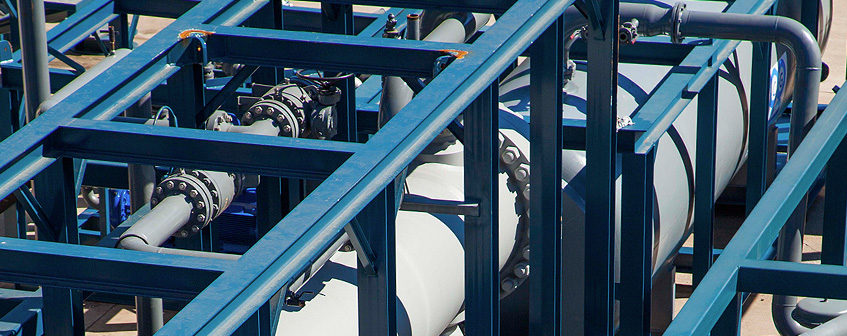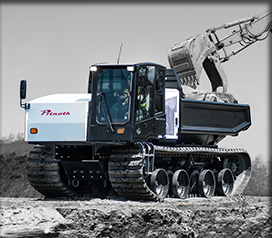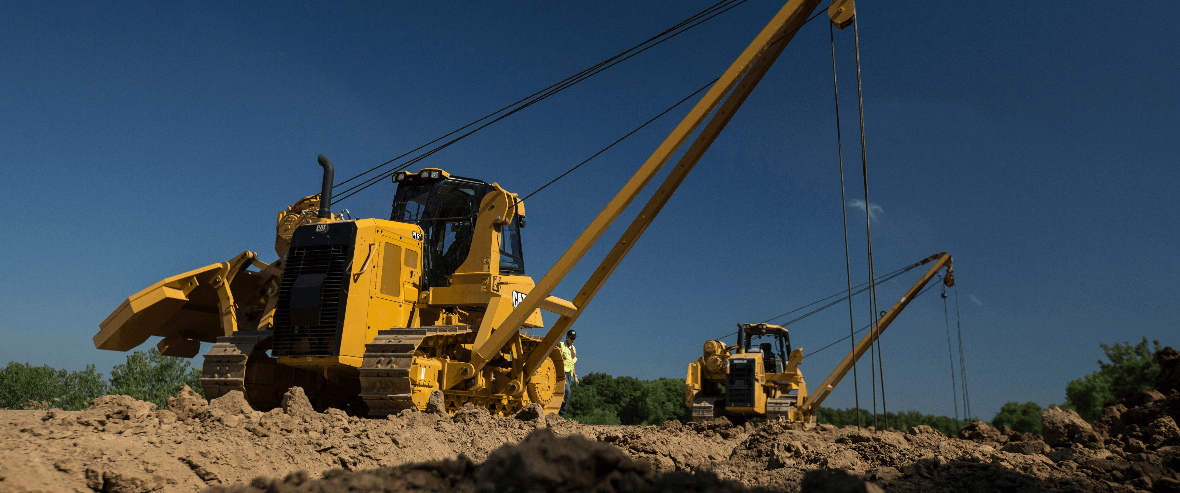Superior Rentals fusion machines: how they save time
Wiki Article
A Comprehensive Guide to the Various Kinds of Oil Field Equipment and Pipeline Equipment Available
The oil and gas industry relies heavily on customized equipment for reliable extraction and transportation. Numerous sorts of equipment, from drilling rigs to storage tanks, play crucial duties in this intricate process. Each tool serves distinct features that add to general operational success. Understanding these components is essential for any individual involved in the sector. As the market advances, so as well do the modern technologies that support it. What developments are on the horizon?
Drilling Rigs: The Backbone of Oil Exploration
Drilling rigs serve as the crucial machinery in the domain of oil expedition, making it possible for firms to gain access to hydrocarbon gets buried deep under the Earth's surface. These rigs can be found in numerous kinds, including land rigs, offshore rigs, and mobile systems, each created to operate in particular environments. Furnished with sophisticated modern technology, piercing rigs can penetrate geological formations with precision, making certain reliable resource removal. The architectural stability and functional capacities of these rigs are important, as they must withstand extreme conditions and significant pressures. The option of a drilling gear impacts the overall job expense and timeline, making it a crucial consideration for oil business looking for to optimize their exploration initiatives and make best use of efficiency in their procedures.Pumps: Vital for Liquid Movement
In the oil extraction process, the function of pumps is significant, assisting in the activity of liquids throughout numerous phases of manufacturing. Pumps are vital for transferring unrefined oil, water, and other fluids from underground reservoirs to the surface area and after that with pipes to refineries. They can be found in different types, including centrifugal, favorable variation, and submersible pumps, each serving details purposes based upon the liquid qualities and functional requirements. Centrifugal pumps are generally utilized for their effectiveness in high-flow applications, while favorable variation pumps master managing viscous liquids. The selection of pump effects overall performance, functional security, and upkeep expenses. Correct option and maintenance of pumps are important for enhancing production and minimizing downtime in oil area procedures.Valves: Managing Flow and Pressure

Shutoffs play an essential role in taking care of the circulation and stress of liquids within oil fields and pipelines. Various sorts of valves offer distinctive applications, each designed to fulfill specific functions basic for efficient operation - Superior Rentals midland. Recognizing the features and usages of these shutoffs is essential for maximizing system efficiency and safety and security
Sorts of Valves
Necessary elements in oil field operations, shutoffs play a critical function in regulating the flow and pressure of fluids within pipelines and devices. Different sorts of valves are utilized to satisfy the diverse demands of oil and gas production. Typical types include gateway shutoffs, which give a straight-line flow and marginal pressure drop; globe shutoffs, known for their throttling capacities; and round valves, identified for their quick on/off control. In addition, check shutoffs protect against backflow, while butterfly shutoffs provide a light-weight solution for regulating flow. Each valve kind is created with specific materials and arrangements to endure the rough conditions frequently found in oil areas, making certain reliability and effectiveness in operations. Comprehending these kinds is essential for reliable system monitoring.Valve Applications and Functions
While different sorts of valves offer distinct objectives, their primary applications rotate around controlling flow and pressure within oil and gas systems. Valves such as entrance, world, and round shutoffs control fluid activity, guaranteeing peak performance and security. Entrance valves are frequently utilized for on/off control, providing minimal circulation resistance. World valves, on the other hand, offer precise flow guideline, making them ideal for throttling applications. Round shutoffs are favored for their fast operation and limited sealing abilities. Furthermore, pressure safety valve are essential for preventing system overpressure, guarding devices integrity. Generally, the suitable option and application of shutoffs boost operational effectiveness, making sure the reputable transportation of oil and gas through pipes and handling facilities.Compressors: Enhancing Gas Transport
Compressors play an essential duty in the effective transportation of all-natural gas, guaranteeing that it moves efficiently through pipelines over fars away. These gadgets boost the pressure of gas, permitting it to get over friction and altitude modifications within the pipeline system. In addition, compressors promote the balancing of supply and demand, fitting variations in intake and production rates. Various sorts of compressors are utilized in the sector, consisting of centrifugal, reciprocating, and rotary screw compressors, each offering distinct benefits based on the functional requirements. Routine upkeep of these compressors is essential to take full advantage of efficiency and lessen downtime, inevitably adding to a trusted gas transportation network. Their important feature highlights the value of compressors in the total oil and gas facilities.Storage Tanks: Safe and Reliable Liquid Monitoring
Effective transport of gas counts on various sustaining systems, among which is the appropriate monitoring of tank. These storage tanks play an essential role in securely containing fluids, ensuring that functional effectiveness is kept while decreasing environmental threats. Constructed from durable materials, they are made to stand up to high stress and corrosive aspects. Effectively sized and strategically situated, storage space containers help with the smooth circulation of gas and various other liquids, preventing traffic jams in supply chains. Routine upkeep and monitoring are crucial to spot leaks or structural concerns, advertising security and conformity with regulatory criteria. Eventually, the effective administration of storage containers is vital for the overall stability and reliability of the oil and gas market's fluid handling systems.
Pipeline Solutions: Infrastructure for Transportation
Pipeline systems act as the backbone of the oil and gas industry, facilitating the efficient transportation of hydrocarbons over large ranges. These systems include various parts, consisting of pipes, shutoffs, pumps, and compressors, all thoroughly made to ensure seamless circulation. The products made use of in pipeline building, usually steel or high-density polyethylene, are picked for toughness and resistance to corrosion. Pipeline networks can extend throughout land and water, attaching manufacturing sites to refineries and circulation. Additionally, advanced modern technology enables real-time monitoring of flow rates and pressure levels, boosting operational performance. The calculated placement of these pipes decreases ecological impact while taking full advantage of source access, thereby playing a crucial role in meeting power needs globally.Safety Equipment: Making Sure Worker and Environmental Management
The procedure of pipeline systems, while essential for energy transportation, also provides substantial safety challenges for employees and the setting. Security devices plays a considerable duty in mitigating these risks. Individual safety devices (PPE) such as headgears, handwear covers, and non-slip footwear safeguards workers from physical risks. Additionally, gas discovery systems keep an eye on for leaks, making sure that harmful compounds do not posture a danger to personnel or the bordering ecosystem. Emergency situation closure systems are necessary for promptly stopping procedures throughout a crisis, preventing prospective calamities. Spill containment products, consisting of absorbents and obstacles, are fundamental for decreasing environmental effect. In general, purchasing all-inclusive security devices get more info is critical for preserving functional honesty and protecting both workers and the environment in the oil and gas market.
Often Asked Inquiries
Just how Do I Choose the Right Oil Field Equipment for My Task?
Selecting the right oil area devices involves reviewing job specs, budget restrictions, and operational needs. Consider variables such as equipment dependability, compatibility with existing systems, and the supplier's online reputation to assure peak efficiency and safety.What Are the Upkeep Requirements for Oil Field Equipment?
Maintenance needs for oil area devices consist of regular assessments, lubrication, and prompt repairs. Operators ought to likewise stick to manufacturer guidelines, screen efficiency metrics, and guarantee compliance with safety and security regulations to enhance durability and performance.
How Can I Make Sure Compliance With Environmental Laws?
To guarantee conformity with environmental regulations, firms must carry out regular audits, execute ideal practices, purchase training, maintain appropriate documentation, and remain upgraded on regulation (Superior Rentals fusion machines). Collaboration with environmental companies can likewise boost adherence to lawsWhat Is the Ordinary Life-span of Pipeline Equipment?
The average lifespan of pipeline equipment usually ranges from 20 to 50 years, relying on variables such as material top quality, environmental conditions, and maintenance practices. Regular evaluations can considerably influence long life and operational efficiency.Exactly how Do I Safely Deliver Oil Field Equipment to Remote Locations?
Transferring oil field tools to remote areas calls for careful preparation, consisting of path assessment, securing permits, utilizing suitable cars, and guaranteeing safety protocols are adhered to. Proper training and interaction among teams are necessary for successful transportation.Report this wiki page